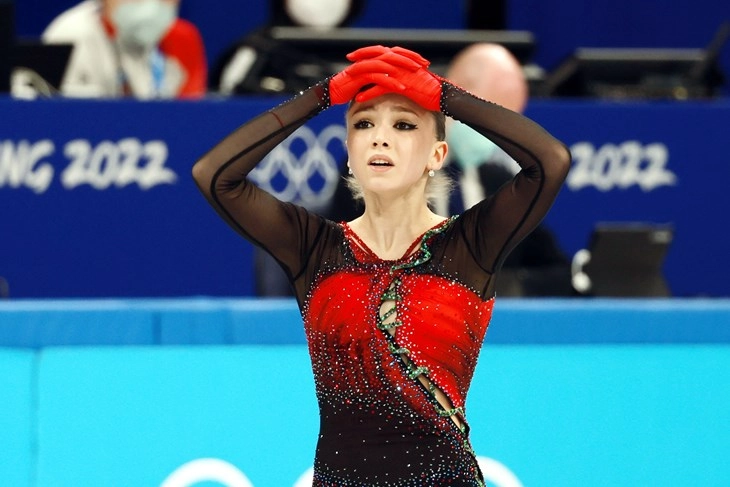Teenage Russian figure skater Kamila Valieva has been handed a four-year ban for a doping violation, leading to the Court of Arbitration for Sport (CAS) stripping Russia of the 2022 Olympic team event gold medal. Valieva, who was 15 at the time, contributed to Russia’s team gold at the Beijing Games, but the medal ceremony was never held as she tested positive for the banned substance trimetazidine on December 25, 2021, during the Russian championships.
Although Valieva was initially cleared by a Russian anti-doping tribunal, the World Anti-Doping Agency (WADA) and the International Skating Union (ISU) contested the ruling, urging CAS to impose a four-year ban and disqualification from all events post the positive test. CAS granted this request after an extended process, prohibiting Valieva from December 25, 2021, for four years.
The team event gold is set to be awarded to the United States, originally in second place, pending a decision by the International Olympic Committee.
WADA welcomed the CAS decision, emphasizing its commitment to fairness and clean sport. In Russia, the domestic skating body announced a thorough review of the verdict, with Kremlin spokesman Dmitry Peskov describing it as a “politicized decision” and hinting at a potential appeal.
Valieva and her legal team can appeal the CAS ruling at the Swiss supreme court, but only on procedural grounds.
The case gained attention during the Beijing Games when a CAS panel permitted Valieva to continue competing in the individual event despite the positive test. Subsequently, the disciplinary anti-doping commission (DADC) of Russia’s anti-doping agency RUSADA ruled Valieva bore “no fault or negligence,” disqualifying her only from the Russian championships.
This decision was challenged by WADA, the ISU, and RUSADA, leading to hearings at CAS in September and November 2022. WADA sought a four-year ban, while ISU wanted at least two years, and RUSADA suggested limited consequences.
Valieva and her legal team argued that CAS lacked jurisdiction over the claims and sought reinstatement into the Russian championships results. Alternatively, they proposed a two-year ban without disqualification from events, including the Olympics.
The CAS ruling stated that Valieva failed to prove, based on the evidence, that she did not intentionally violate anti-doping rules under Russian regulations. It imposed a four-year ineligibility period, stating there was no discretion to reduce the duration.
WADA emphasized the severity of doping involving minors and encouraged governments to consider legislation making it a criminal offense. Valieva’s ban extends until December 2025, just before the Winter Olympics in Milan/Cortina d’Ampezzo, Italy. She has not competed internationally since the Beijing Games, with Russian skaters banned following the country’s invasion of Ukraine in February 2022.





Comments are closed for this post.